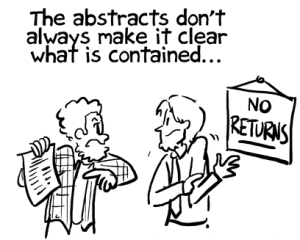(Source: Youtube – Guo Yixin)
Hi Guys! As you can see… I’ve made a video myself.
Cute dog isn’t it?
Just look at how easy I’ve uploaded it up on social media for free. But does it mean it is okay for others to use it for their own purpose without crediting? With relevance to my previous topic, this is an example of how easy it is for others to rip off my content and make it theirs.
In this society, Internet is indispensable.
It is easily within our reach and thus had played a major role in promoting globalisation. People can share and transfer their knowledge easily around the world. As a saying goes…
Sharing will enrich everyone with knowledge.
-Ana Monnar
The Perks of publishing materials online for free
For students like us, we have a heavy reliance on free materials online for our researches. We have low disposable income which in return reduces the chances of us buying articles. There might be a chance whereby the articles are in no use for us but we cannot do refunds.
 (Credits: Open Access Explained!)
(Credits: Open Access Explained!)
Due to this reason, publishers will then have a higher chance to gain recognition of their work through citations as time goes by. This also helped to prove their credibility of materials.
Having this, it would also increase their readership.
With positive recognition and credibility, it expose them to receive opportunities from around the world to join in International research. It is part of self-branding online.
The Cons for publisher
In order for publishers to upload their articles online, they have to pay a certain amount of publication fees. For end users like us, it is totally free. Publishers spend time and effort on all kinds of work for free but it is not them who are profiting.
Furthermore, copyright infringement is also an issue. End users might use informations from open access resources and not cite the publisher. Since it is an open access resource, it is easy for users to plagiarise them.
But for publishers that wouldn’t mind sharing their knowledge with others, this wouldn’t affect them as they believe that the presence of open access resource is to introduce free learning.
Take a look at this video:
(Credits: Youtube)
So.. how do you actually weigh the pros and cons for the publisher?
I would say there is still no definite answer.
In conclusion, end users is still responsible to cite and give the publishers the recognition they deserve even if it’s an open access resource. Just like how I would appreciate it if others credit me if they use my dog’s photos showed on my video even though my it’s free for all to see.
But end of the day it’s…
 (Credits: Google)
(Credits: Google)
References:
https://www.quora.com/What-is-a-good-blog-publisher-for-a-writer-like-me
http://hubpages.com/literature/Writing-and-Publishing-and-Recognition
Click to access dorn_knowledge_transfer_via_the_internet.pdf
http://www.edanzediting.com/blog/advantages_and_disadvantages_open_access#.VkL_KLcrLIU
http://www.inma.org/blogs/keynote/post.cfm/6-ways-publishers-can-take-advantage-of-content-marketing

Hello YiXin!
That’s a really cute video of your dog! Join the hangout next Monday and bring your dog in to the cam? 😛 Totally agree with you on your point about Open Access is beneficial to us, students. Just the thought that if we purchase textbooks (expensive enough) and we need to pay for our research, it’s quite costly for us.
As you stated about the copyright issue as others may plagiarize it, which I agree there’s a possibility since it is readily available and accessible. Do you think there might be a possibility of misuse/misinterpretation of information too? With Open Access, do you think researchers can do anything to help minimize/prevent misuse of content?
Feel free to drop by my blog to comment too! Cheers 🙂
LikeLiked by 1 person
Pingback: Topic 5 – Reflective Summary “What can we do as our part for content producers?” | Emilia.Q
Pingback: Intentions | Thoughts
Pingback: Free or Not, You Decide (Reflective Summary and Comments) | Mabel
Hi Emilia!
I’d love to show my dog to the class! Really appreciate that comment of yours 😛
It’s great to see that we come to a common agreement that Open Access resources do benefit students like us!
Answering your question…
I do agree that there is definitely a possibility for people to misuse or misinterpret information online.
An example of misusing information online would be students displaying dishonesty act such as cheating in exams using answers found online.
Another example would be simple science experiments like this video:
could also lead to one to misuse it to create a dangerous bomb.
Scary isn’t it? 😦
As for misinterpreting information…
Just imagine there’s an article online saying “Teenagers should be gay”. Some will misinterpret it as “Teenagers should be homosexual”. But in fact, what if the author’s real definition of that sentence meant that Teenagers should be HAPPY? It is that easy for people to misinterpret information.
In my opinion, it is ultimately the publisher’s choice whether he wants to post his articles online for free. It is difficult for them to control their reader’s thinking.
Thus, publishers might want to post a reminder message for their readers to not misuse their research into doing unethical things!
I hope you find my answer useful!
Cheers,
Yixin 🙂
LikeLike
Pingback: Open Access or not, It’s THEIR choice | It Never Ends